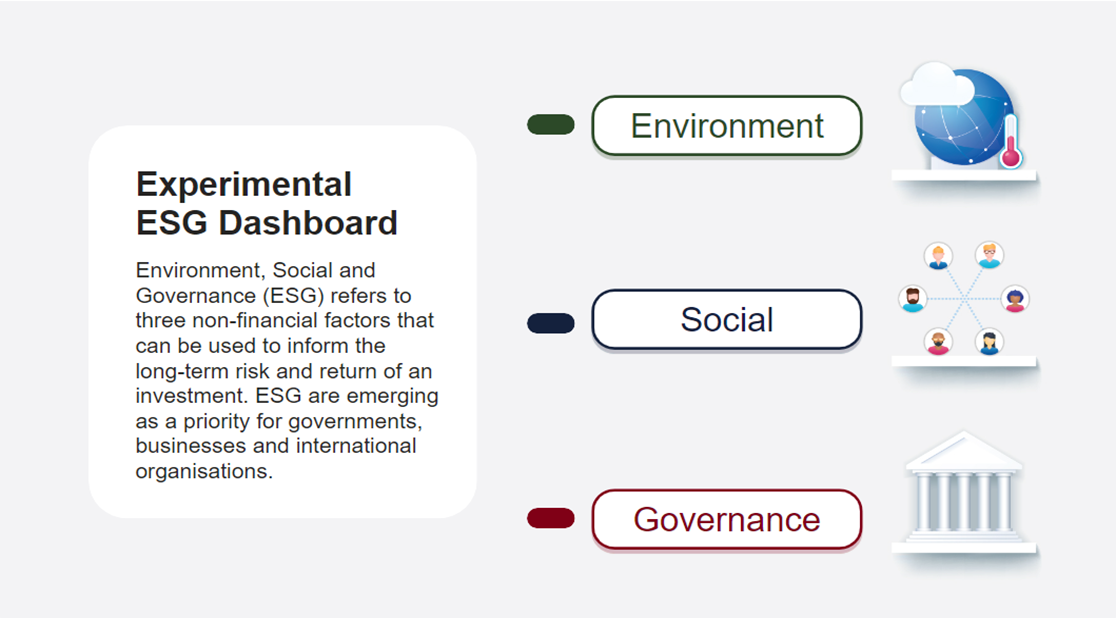The landscape in which businesses operate is evolving due to increased awareness of environmental degradation and the importance of diversity and inclusion, changing the expectations for corporate behaviour. Whether it is considering the transition to a low carbon economy or a more diverse workforce, shareholders are more than ever looking beyond financial performance when making investment decisions. It is within this context that Statistics Canada released its Experimental ESG Dashboard. The dashboard presents a series of environmental, social and governance indicators that demonstrate the non-financial performance of a selection of industries.
Environmental, social and governance (ESG) are three non-financial themes that can be used to inform the long-term risk or return of an investment. The rationale is that industries that are adequately managing their ESG risks will be less vulnerable to changes in regulations or societal expectations and will therefore perform better in the long-run.
Statistics Canada has leveraged existing data sources for a limited number of industries to produce an experimental dashboard. The goal of the dashboard was to provide a sample of ESG indicators in order to assess users' interest in the data to determine the future direction of the project. Consultations and engagements with ESG academics and researchers, provinces and territories, federal partners, and other non-governmental partners have now been completed. The results are available on the Environmental, Social and Governance (ESG) Program consultative engagement page.
ESG and Indigenous Peoples
The data in the dashboard are disaggregated as much as possible to reflect the Indigenous population. However, there are still gaps with respect to indicators about the relationship between industries and Indigenous peoples, such as the proportion of supplies sourced from Indigenous businesses, Indigenous investment and ownership, Indigenous representation on executive boards and access to financing in Indigenous communities, to name a few. These data are necessary to guide decision-makers in developing appropriate policies and programmes and to address the needs of Indigenous communities and organizations.
The Experimental ESG dashboard is continuously growing and changing. Statistics Canada conducted engagement activities with Indigenous organizations to better understand their data needs and perspectives on ESG. Indigenous voices and organizations will continue to inform the development of a suite of indicators that address the needs of Indigenous communities and more accurately represents the Canadian context. If you are interested in learning more about the project or providing your feedback, please contact Statistics Canada's ESG team.

Description - Experimental ESG Dashboard (Environment, Social and Governance)
Environment, Social and Governance (ESG) refers to three non-financial factors that can be used to inform the long-term risk and return of an investment. ESG are emerging as a priority for governments, businesses and international organisations.
- Environment
- Social
- Governance